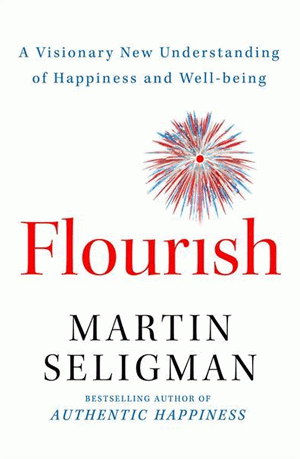Posts Tagged ‘Martin-Seligman’
Three Insights from the Frontiers of Positive Psychology
In late June, the third World Congress on Positive Psychology convened leading scientists to explore the keys to a happy and meaningful life. Here are three of the most striking and practical insights from the conference.
Read MoreA Course Correction for Positive Psychology: A Review of Martin Seligman’s Latest Book
(Editor’s Note: we are pleased to bring you this article thanks to our collaboration with Greater Good Science Center). A Course Correction for Positive Psychology A review of Martin Seligman’s latest book, Flourish: A Visionary New Understanding of Happiness and Well-Being. — By Jill Suttie As president of the American Psychological Association in 1998, Martin Seligman challenged…
Read MoreEnhance Happiness and Health by Cultivating Gratitude: Interview with Robert Emmons
Gratitude is a positive psychology. Happiness and good mental health can be cultivated through gratitude.
Read MoreTop Ten Tips for Women Who Lead Men
Ellen recently wrote a nice post titled Top Ten Tips for Men Who Lead Women, and asked for volunteers to offer a complementary perspective. I hope you enjoy! We men know we are hard to lead, and that can be stressful for you and for us. You should know that stress affects short term memory, so…
Read MoreJack and Elaine LaLanne and Brain Health
Very fun interview with Jack and Elaine LaLanne by Dave Bunnell: read it at Meet Fitness Legends Jack and Elaine LaLanne | ELDR.com. See some quotes: In 1936, Jack opened America’s first health club in Oakland, California, called the “Jack LaLanne Physical Culture Studio.†Through television shows, public appearances, and booksâ€â€and by selling health-related productsâ€â€they…
Read MoreYoga and stress management
Steven Edwards at Wired Blog writes a post titled Yoga Boosts Brain’s GABA Levels, saying that “Participants in the yoga group had a 27% increase in GABA levels, while those in the reading group remained unchanged. Co-authors Chris Streeter from BUSM and Domenic Ciraulo pointed out that this research shows a method of treating low…
Read More

